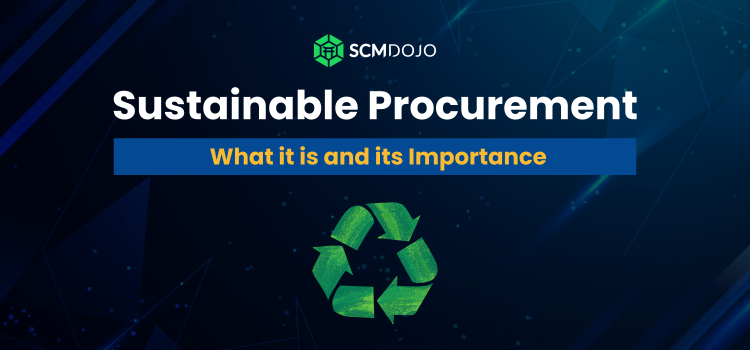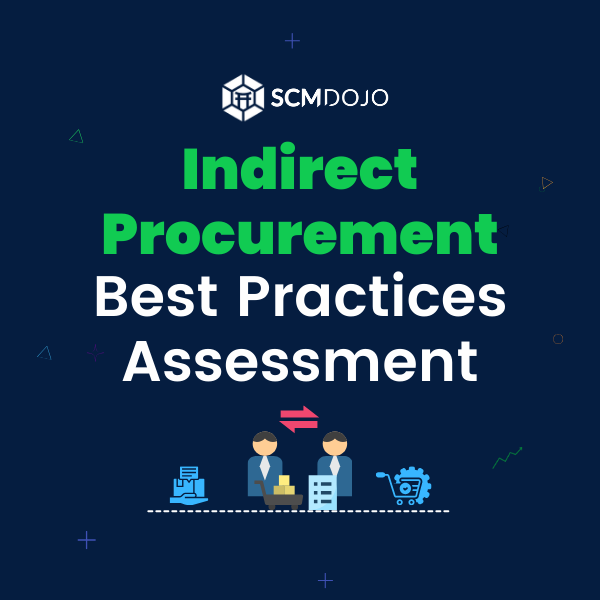In today’s rapidly changing business landscape, sustainable procurement has emerged as a game-changer for supply chain resilience and brand reputation. As consumers become more conscious of the environmental and social impacts of their purchases, companies can no longer afford to turn a blind eye to their procurement practices. Sustainable procurement goes beyond simply sourcing eco-friendly materials; it encompasses a holistic approach that takes into account ethical labor practices, fair trade, and carbon footprint reduction. By integrating sustainability into their procurement processes, companies can not only minimize risks related to supplier disruptions and reputational damage but also gain a competitive edge in the market. In this article, we will delve into the benefits of sustainable procurement, explore how it enhances supply chain resilience, and discuss its impact on brand reputation.
[Read More: 6 Essential Procurement Training Courses for Professionals: How To Begin and Advance Your Career in Procurement]
What is Sustainable Procurement?
Sustainable procurement, also known as green procurement or responsible sourcing, refers to the process of integrating environmental, social, and ethical considerations into the purchasing decisions of an organization. It goes beyond simply obtaining goods and services at the best price and takes into account the environmental impact, social responsibility, and long-term sustainability of the products or services being acquired. By prioritizing these practices, businesses can not only reduce their ecological footprint but also contribute to positive social outcomes and foster a more resilient supply chain.
The Importance of Sustainable Procurement in Supply Chain Resilience
Sustainable procurement plays a crucial role in ensuring the resilience of a company’s supply chain. In a world where natural disasters, geopolitical tensions, and economic uncertainties can disrupt the flow of goods and services, companies need to be prepared for unforeseen disruptions. By adopting such practices, companies can build a more robust and resilient supply chain that is less vulnerable to shocks and disruptions. Sustainable procurement helps diversify the supplier base, reducing dependence on a single source and decreasing the risk of supply chain disruptions. It also encourages closer collaboration and communication with suppliers, fostering stronger partnerships that can withstand challenges. Furthermore, such type of procurement also promotes transparency and traceability in the supply chain, making it easier to identify and address potential risks before they escalate. Overall, it is an essential tool for companies looking to enhance the resilience of their supply chain and ensure business continuity.
Benefits of Sustainable Procurement for Brand Reputation
In addition to bolstering supply chain resilience, sustainable procurement has a significant impact on brand reputation. Today’s consumers are more socially and environmentally conscious, and they expect the companies they support to share their values. By prioritizing sustainable procurement, companies can position themselves as responsible and ethical businesses, earning the trust and loyalty of their customers. Sustainable procurement practices demonstrate a commitment to environmental stewardship, fair labor practices, and community engagement, all of which resonate with consumers who are increasingly seeking out sustainable products and services. Furthermore, sustainable procurement can help companies differentiate themselves from their competitors, giving them a unique selling point that can attract a wider customer base. By aligning their procurement practices with their brand values, companies can build a positive brand image and enhance their reputation in the market.
Key Principles
Implementing sustainable procurement practices requires a clear understanding of its key principles. These principles serve as a guide for companies looking to embed sustainability into their procurement processes. First and foremost, these practices involve considering the entire lifecycle of a product, from sourcing to disposal. This means evaluating the environmental and social impacts of each stage and making informed decisions that minimize harm. Secondly, sustainable procurement prioritizes transparency and accountability. Companies should be transparent about their sourcing practices and provide relevant information to stakeholders. Additionally, this type of procurement emphasizes the importance of collaboration and engagement with suppliers, fostering long-term partnerships built on trust and shared values. Finally, sustainable procurement takes a holistic approach by considering not only environmental sustainability but also social and economic factors. By adhering to these principles, companies can ensure that their procurement practices are truly sustainable and aligned with their overall sustainability goals.
Steps to Implement Sustainable Procurement in Your Business
Implementing sustainable procurement may seem like a daunting task, but it is achievable with a systematic approach. Here are some steps to help you get started:
- Assess your current procurement practices: Conduct a thorough assessment of your existing procurement processes to identify areas for improvement and potential risks. Look for opportunities to integrate sustainability considerations into your decision-making.
- Set clear sustainability goals: Define specific and measurable sustainability goals that align with your overall business objectives. These goals will guide your procurement decisions and help track progress over time.
- Engage with suppliers: Establish open lines of communication with your suppliers and engage them in discussions about sustainability. Encourage them to adopt sustainable practices and provide support and resources to help them meet your sustainability requirements.
- Integrate sustainability criteria into supplier selection: Develop a set of sustainability criteria that you can use to evaluate potential suppliers. Consider factors such as environmental impact, labor practices, and ethical sourcing.
- Collaborate with stakeholders: Engage with internal and external stakeholders, including employees, customers, and NGOs, to gain insights and gather feedback on your sustainability initiatives. This collaboration will help you refine and improve your procurement practices.
- Monitor and measure performance: Implement a system to track and measure the sustainability performance of your procurement activities. Regularly review and analyze data to identify areas for improvement and make informed decisions.
By following these steps, you can gradually integrate sustainable procurement into your business and reap the benefits of a more resilient supply chain and enhanced brand reputation.
[Read More: Category Management in Procurement: A Comprehensive Overview & Best Practices]
Tools and Resources
Implementing sustainable procurement practices can be made easier with the help of various tools and resources. Here are a few examples:
- Sustainable Procurement Guidelines: Many organizations, such as the United Nations and the World Bank, have developed comprehensive guidelines and frameworks for sustainable procurement. These resources provide practical advice and best practices for implementing it as such.
- Sustainability Assessment Tools: There are several tools available that can help companies assess the sustainability performance of their suppliers. These tools provide a structured framework for evaluating suppliers based on environmental, social, and economic criteria.
- Supplier Collaboration Platforms: Digital platforms and networks enable companies to collaborate with their suppliers on sustainability initiatives. These platforms facilitate communication, information sharing, and joint problem-solving, leading to more sustainable procurement practices.
By utilizing these tools and resources, companies can streamline their efforts and make informed decisions that drive positive change.
Challenges and Barriers
While the benefits of sustainable procurement are clear, there are also challenges and barriers that companies may face when implementing sustainable procurement practices. Some of these challenges include:
- Cost considerations: Sustainable procurement practices may initially come with higher upfront costs. However, companies must recognize the long-term cost savings and value creation that can result from sustainable procurement.
- Lack of supplier capability: Not all suppliers may have the capability or resources to meet sustainability requirements. Companies need to work closely with suppliers, providing support and resources to help them improve their sustainability performance.
- Limited market availability: Depending on the industry and location, there may be limited availability of sustainable products and services. Companies may need to invest in research and development to find suitable alternatives or work with suppliers to develop sustainable solutions.
- Resistance to change: Implementing sustainable procurement practices may require a shift in mindset and culture within the organization. Resistance to change from employees and stakeholders can be a barrier that needs to be addressed through effective communication and training.
- By acknowledging and addressing these challenges, companies can overcome barriers to sustainable procurement and create a more sustainable and resilient supply chain.
[Read More: Decoding the Procurement Department: A Comprehensive Guide to Roles and Responsibilities]
Future Trends in Sustainable Procurement
As sustainability becomes increasingly important in the business world, we can expect to see several future trends in sustainable procurement. Some of these trends include:
- Digitalization and data-driven decision-making: The use of digital technologies and data analytics will enable companies to make more informed and data-driven decisions in their procurement processes. This will help identify opportunities for improvement and optimize sustainability performance.
- Circular economy practices: Companies will increasingly adopt circular economy practices, which focus on reducing waste and maximizing resource efficiency. This will involve designing products with recyclability in mind and developing closed-loop supply chains that minimize waste and promote reuse.
- Supplier collaboration and transparency: Collaboration and transparency among suppliers will become even more critical in sustainable procurement. Companies will work closely with suppliers to share best practices, promote sustainability initiatives, and ensure compliance with sustainability standards.
- Regulatory requirements: Governments around the world are increasingly implementing regulations and policies to promote sustainable procurement. Companies will need to stay updated on these requirements and ensure compliance to avoid legal and reputational risks.
By staying ahead of these trends and embracing sustainability as a core value, companies can stay competitive and future-proof their procurement practices.
Conclusion
Sustainable procurement is no longer a nice-to-have; it is a necessity for companies looking to thrive in today’s business landscape. By integrating sustainability into their procurement processes, companies can enhance supply chain resilience, minimize risks, and build a positive brand reputation. It is not just an ethical choice; it is a strategic decision that can drive innovation, attract customers, and create long-term value. As consumers become increasingly conscious of their purchasing decisions, companies that embrace sustainable procurement will be well-positioned to meet their evolving needs and expectations. Let us embrace the transformative power of this concept and pave the way for a more sustainable and resilient future.
–
About the Author – Dr Muddassir Ahmed
Dr MuddassirAhmed is the Founder & CEO of SCMDOJO. He is a global speaker, vlogger and supply chain industry expert with 17 years of experience in the Manufacturing Industry in the UK, Europe, the Middle East and South East Asia in various Supply Chain leadership roles. Dr. Muddassir has received a PhD in Management Science from Lancaster University Management School. Muddassir is a Six Sigma black belt and founded the leading supply chain platform SCMDOJO to enable supply chain professionals and teams to thrive by providing best-in-class knowledge content, tools and access to experts.
You can follow him on LinkedIn, Facebook, Twitter or Instagram.





